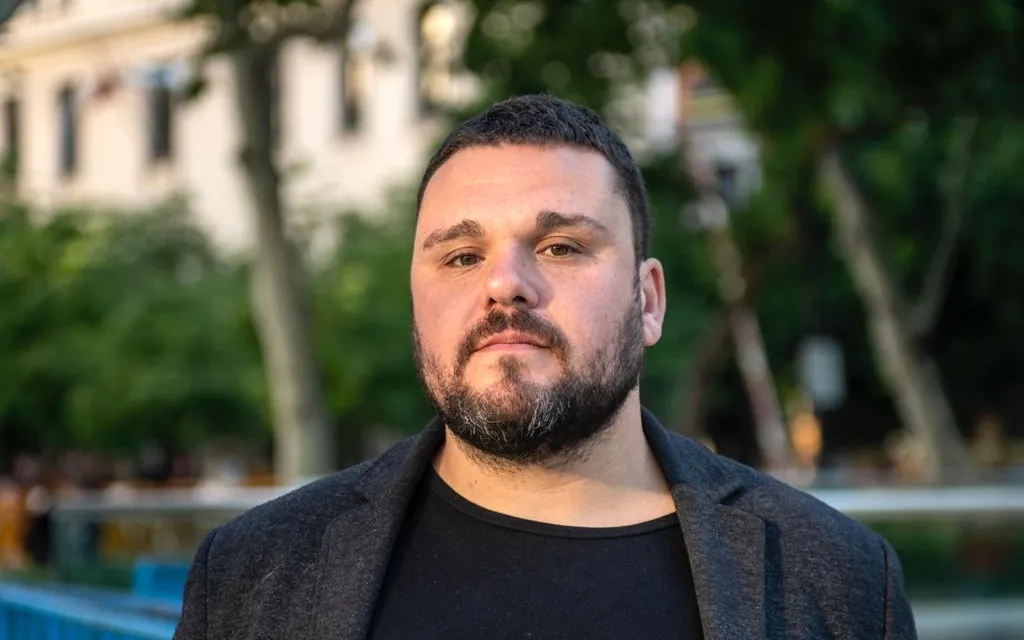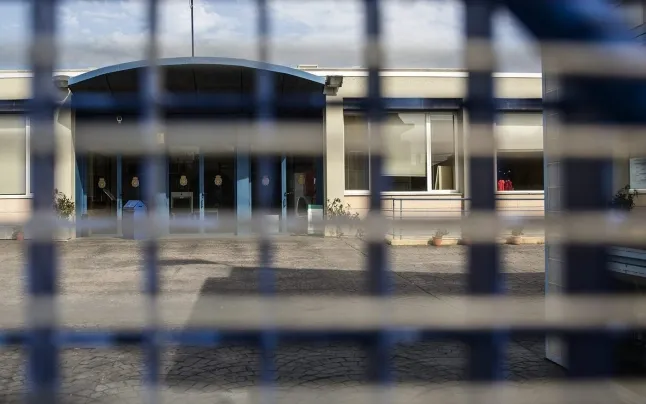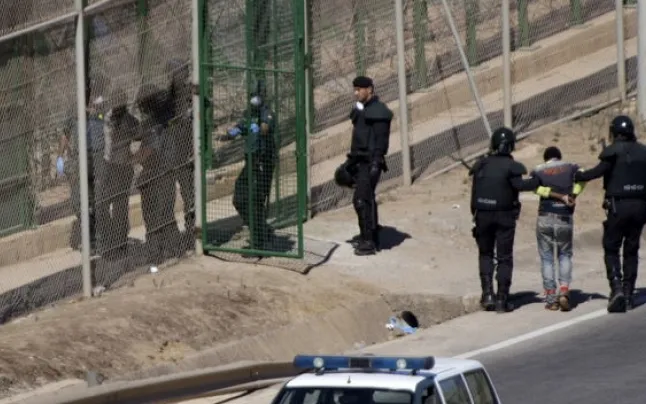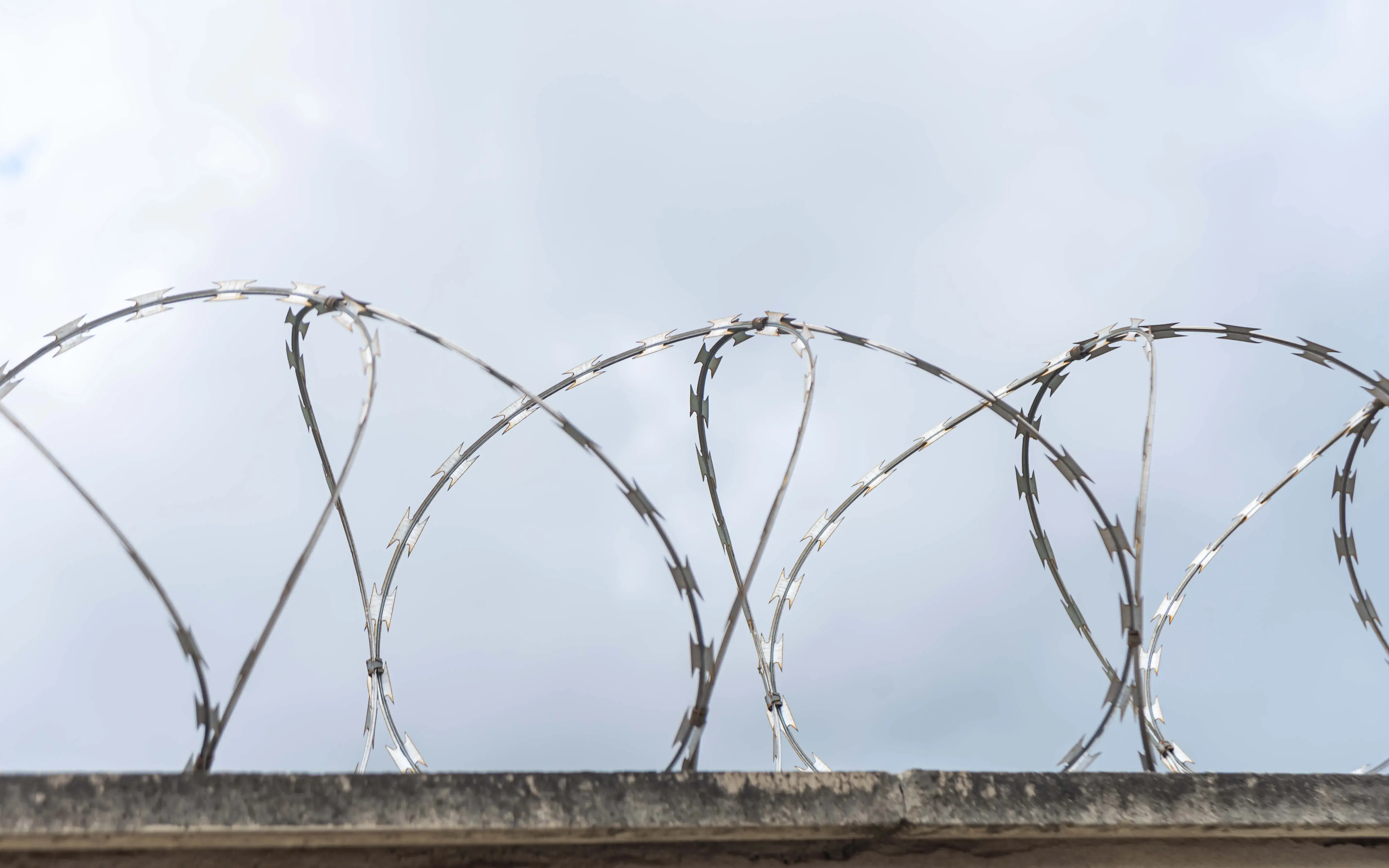Andrés García: "What is generated by the Immigration Detention Centres is more social damage than control of the migratory flow"
Several entities throughout Spain, including Irídia, are demanding the permanent closure of the Immigration Detention Centres once the confinement is over, as well as an end to deportations.
The organisations fighting for the rights of migrants and refugees have released a statement with several demands to the Spanish Government regarding the situation of this group, as well as that of the Immigration Detention Centres (CIE, by its Spanish initials). Among other things, they demand not to reopen the CIEs and to take the necessary actions to close them permanently. Besides, they ask for a process of regularisation of the migrants.
One of the entities most involved in the campaign is Irídia. We talk to its coordinator, Andrés García, regarding the campaign, the movement against the reopening of the centres and the future of the people released during confinement.
For what reasons is the campaign being intensified in this situation?
For two main reasons: firstly, given that the maximum stay at a CIE is 60 days and that it was impossible to deport people during the pandemic, the CIE became unjustified. Secondly, the health system at the CIE did not offer the necessary conditions to guarantee the health rights of the interns. We have been saying for a long time that the public health system should be in charge, in this case, the Ministry of Health, and not a private company.
What was the situation of the interns at the CIE during the pandemic?
It was very difficult to maintain social distance. Moreover, they would not have been able to get through this difficult situation - which we are all living - with their families. Many people at the CIEs has family, friends and a vital project. In this context, these people cannot be at a place of deprivation of liberty. There are medical reasons and social and family impact.
Some weeks ago, all CIEs in Spain were closed.
A pressure campaign was carried out as well as protests in the same centres, which lead to a progressive and slow emptying of all the CIEs in Spain. We are now at this point where there is pressure from the EU for states to continue deportations while borders are closed and the WHO advises to only make essential movements.
Therefore, one of the requests is to keep the CIEs closed once the confinement is over.
CIEs should not even exist. We take advantage of this moment to give visibility to the citizen opposition to the CIEs. At the same time, the need to carry out the regularisation of migrants instead of reopening the CIEs becomes clear. There are more than 600,000 people in an irregular situation and many of them have been living here for a long time.
These are two campaigns that complement each other.
They both fight for a change of paradigm of migration policy. We cannot pretend to control migratory flow by excluding people from regularisation. Besides, CIEs are just generating more social damage than control of this flow. They generate a discriminatory and racist system which is intolerable. Some people can be in an irregular situation for three, five or ten years and some of them end up being enclosed at a CIE and deported.
Does this prove that we can live without the CIEs?
What good do the CIEs? They only serve to generate fear and control over migrants who are in a situation of absence of rights. Thus, we have a moral debate as a society. If we want to create a society based on institutional racism, CIEs work. If what we want is to manage migratory flows realistically, respecting human rights and eradicating racism, CIEs do not work.
Which is the argument that administrations use to keep the CIEs open?
It is a place where the administration can keep a person up to 60 days to lately deport them to their country of origin by judicial authorisation. Migration policies are based on the control of arrival and deportations. There are currently 600,000 unregularised migrants and between 9,000 and 10,000 deportations are made every year, of which 4,500 people stay at a CIE.
Does the administration consider that they work?
For these people, they have a very serious effect. From a general point of view, it does not have the alleged impact it is supposed to have. The real effect is that many people do not even know if, when they go out on the street, a policeperson will stop them and take them to a CIE to finally be deported. It has a daily impact on people: businesspersons and families are taking advantage of having people at home and paying them so little money.
What will happen to the released people?
We need to remember that in 2018 there were about 58,000 deportation orders in Spain, of which 4,500 people were deported. Many migrants have an existing deportation order because they last for a long time. It can happen that one day, while waking in the street the person is stopped and again ends up at a CIE. Or, even worse, they are directly picked up by the police because there is a deportation flight and they have seats left for a particular country.
And with the CIEs?
It seems that this government gas no intention of generating any paradigm shift in migratory policy. It has the opportunity to regularise migrants, at least in certain key sectors in this context, but still has not even done it. We need to be realistic, we are preparing for a reopening of the CIEs from a social fight point of view against their reopening. We also want to foster a favourable social climate to achieve a process of regularisation.
The campaign highlights the complicated situation of the CETis in Ceuta and Melilla.
At the same time that the CIEs have been temporarily closed due to Covid-19, the Centres for Temporary Stay of Immigrants (CETIs, by its Spanish initials) should be centres of reception and short stay for people arriving to Ceuta and Melilla. People can only leave if the Ministry of Interior authorises them to enter the peninsula, either as asylum seekers or because they are people who are continuing their migratory journey.
The CETI in Melilla has a capacity of 780 people and there are currently more than 1,500 people because they have not been transferred to the peninsula. Considering that 250 people are children who are in these spaces where social distance is almost impossible, it is incomprehensible that the Ministry of Interior keeps it this way.









Add new comment